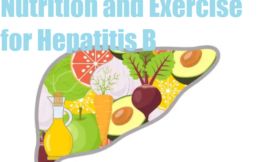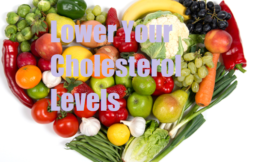Eggs have been a part of our diet for decades, eggs are loaded with nutrients, eggs are often said to be the original superfood because of their many health benefits. Not only do eggs provide high quality protein, they also contain 11 vitamins and minerals, omega-3 fatty acids and antioxidants. And this means they can make a valuable contribution to daily nutrient requirements.
So here are 10 Health Benefits of Eating Eggs;
1. Help to Lose Weight
Eggs are incredibly filling. They are a high-protein food, and protein is, by far, the most satiating macronutrient. Eggs score high on a scale called the satiety index, which measures the ability of foods to cause feelings of fullness and reduce later calorie intake.
In one study of 30 overweight women, eating eggs instead of bagels for breakfast increased feelings of fullness and made them automatically eat fewer calories for the next 36 hours.
2. Get some choline
Choline is a water-soluble vitamin that is often grouped with the B vitamins. It’s used to build cell membranes and helps produce signaling molecules in the brain. One hard-boiled egg has about 147 mg of choline, which is 27% of the daily value.
3. Raise HDL Cholesterol
HDL stands for high-density lipoprotein. It is often known as the “good” cholesterol. People who have higher levels of HDL usually have a lower risk of heart disease, stroke and other health problems
Eating eggs is a great way to increase HDL. In one study, eating two eggs per day for six weeks increased HDL levels by 10%.
4. Maintain your eyesight
As we get older, we need to take better care of our eyes. Egg yolks contain large amounts of lutein and zeaxanthin, helpful antioxidants that help reduce the risk of cataracts and macular degeneration in the eyes. Eggs are also high in vitamin A, which is beneficial for eye health.
5. Incredibly Nutritious
Eggs are among the most nutritious foods on the planet. This comes with 77 calories, 6 grams of protein and 5 grams of healthy fats. Eggs also contain various trace nutrients that are important for health. In fact, eggs are pretty much the perfect food. They contain a little bit of almost every nutrient you need.
If you can get your hands on pastured or omega-3 enriched eggs, these are even better. They contain higher amounts of omega-3 fat and are much higher in vitamin A and E.
6. Reduced Risk of Heart Disease
LDL cholesterol is generally known as the “bad” cholesterol. It is well known that having high levels of LDL is linked to an increased risk of heart disease. But many people don’t realize that LDL is divided into subtypes based on the size of the particles.
There are small, dense LDL particles and large LDL particles.
Many studies have shown that people who have predominantly small, dense LDL particles have a higher risk of heart disease than people who have mostly large LDL particles. Even if eggs tend to mildly raise LDL cholesterol in some people, studies show that the particles change from small, dense to large LDL, which is an improvement.
7. Get enough proteins and amino acids
Getting enough protein in our diets is an important way of helping our body’s health. Each egg contains about six grams of protein, as well as helpful amino acids. Getting our share of protein for the day can help with weight management, increase muscle mass, lower blood pleasure and help our bones, as well.
8. Omega-3 or Pastured Eggs Lower Triglycerides
Eggs from hens that were raised on pasture and/or fed omega-3 enriched feeds tend to be much higher in omega-3 fatty acids. Omega-3 fatty acids are known to reduce blood levels of triglycerides, a well known risk factor for heart disease.
Studies show that consuming omega-3 enriched eggs is a very effective way to lower blood triglycerides. In one study, eating just five omega-3 enriched eggs per week for three weeks reduced triglycerides by 16–18%.
9. Good Source of Omega-3s
Omega-3 is short for omega-3 polyunsaturated fatty acids. They’re a family of “essential fats” that play an important role in the way our cell membranes work. Oily fish is one of the best known sources and eggs contain similar types of omega-3s as those found in fish.
This makes eggs particularly useful for people who avoid or can’t eat fish. Omega-3 fats are good for many things, from heart and brain health to protecting our eyes.
You can include eggs in your diet in different ways and there are lots of recipes available in digital media , try it and encourage your inner chef.





